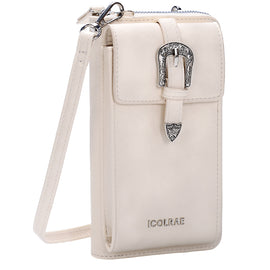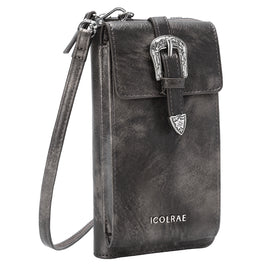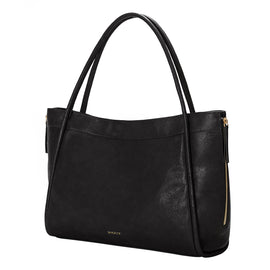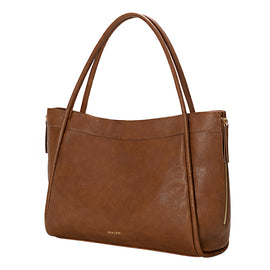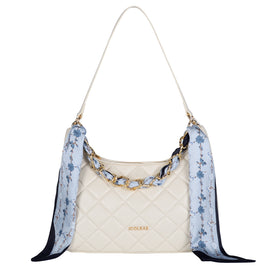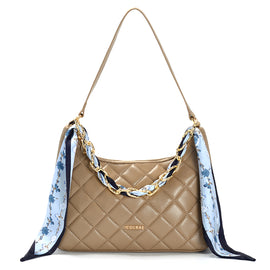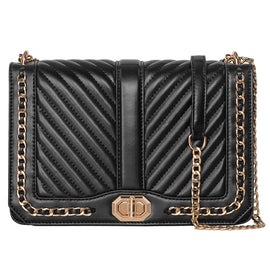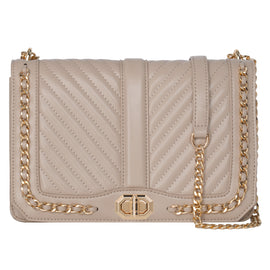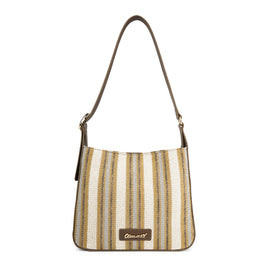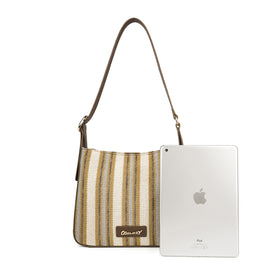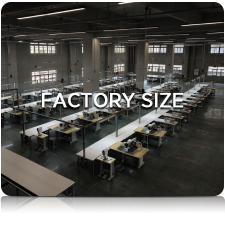As a Bag Brand, We Need to Be Aware of the Impact of PFAS and Safe Alternatives
In today’s increasingly eco-conscious market, consumers and regulators alike are paying closer attention to the materials used in everyday products—including handbags, backpacks, and accessories. One area of growing concern is the presence of PFAS (Per- and Polyfluoroalkyl Substances), a group of synthetic chemicals that have been widely used in textiles for their water- and stain-resistant properties.
As a bag brand, understanding the risks associated with PFAS and exploring safer alternatives isn’t just good practice—it’s critical for product safety, legal compliance, and long-term brand reputation. In this article, we’ll break down what PFAS are, how they impact the fashion industry, and how forward-thinking brands can shift toward more sustainable, PFAS-free solutions.
What Are PFAS and Why Are They Used in Bags?
PFAS are a class of over 9,000 chemicals often referred to as “forever chemicals” because they break down extremely slowly in the environment and the human body. In bag manufacturing, PFAS are commonly used to provide:
-
Water repellency
-
Oil and stain resistance
-
Enhanced durability
These properties may seem appealing for outdoor bags, travel gear, and everyday totes. However, the environmental and health implications of PFAS have come under increasing scrutiny.
Health and Environmental Risks of PFAS
The growing body of research suggests that long-term exposure to PFAS is linked to:
-
Hormonal disruption
-
Immune system effects
-
Increased risk of certain cancers
-
Reproductive and developmental issues
What’s more, PFAS contamination has been detected in water supplies, soil, and wildlife across the globe. Because these chemicals persist in the environment, even small amounts used in manufacturing can have lasting impacts.
Global Regulations and Market Shifts
Many countries and regions are taking action against PFAS use:
-
European Union: Actively moving toward a total ban on PFAS in consumer products through REACH regulations.
-
United States: Certain states like California, New York, and Maine have already banned PFAS in textiles and packaging.
-
Asia-Pacific: While regulations are still developing, global brands sourcing from Asia are demanding PFAS-free production.
Retailers such as REI, Patagonia, and H&M have committed to phasing out PFAS in their products. As consumer awareness grows, more brands will be expected to disclose and eliminate PFAS from their supply chains.
Safer Alternatives to PFAS in Bag Manufacturing
Fortunately, innovation in material science has led to safer, effective alternatives for water- and stain-resistance:
1. Wax Coating or Natural Finishes
Beeswax or plant-based waxes offer water resistance without harmful chemicals. These finishes are ideal for canvas and cotton bags.
2. PU and TPU Coatings
Modern polyurethane (PU) and thermoplastic polyurethane (TPU) coatings can achieve water-resistant effects without the use of PFAS. They are widely used in fashion and athletic gear.
3. Silicone-Based Treatments
Silicone treatments provide durability and resistance to moisture while being safer for both human health and the environment.
4. Bio-Based Materials
Materials made from pineapple fibers (Piñatex), cork, or recycled plastics are not only PFAS-free but also appeal to eco-conscious consumers.
What Bag Brands Need to Do Now
For brands aiming to stay competitive and compliant, now is the time to act:
-
Audit your materials: Identify any PFAS-treated components in your existing products.
-
Work with compliant suppliers: Ensure your manufacturers meet PFAS-free standards.
-
Label transparently: Inform consumers about the safety and sustainability of your materials.
-
Stay ahead of regulations: Monitor evolving laws in target markets to avoid costly recalls or legal issues.
How HerminFashion Supports PFAS-Free Production
At HerminFashion, we recognize the urgency of creating safer, more responsible handbags. As a leading OEM/ODM handbag manufacturer in Guangzhou, we actively work with eco-conscious brands to source PFAS-free materials and develop sustainable production processes.
Here’s how we support forward-thinking brands:
-
Material Sourcing: We offer a growing selection of PFAS-free, vegan, and recyclable materials.
-
Compliance Assurance: Our team keeps up with global chemical safety standards to ensure your bags meet local and international regulations.
-
Customized Solutions: From waterproof PU coatings to organic cotton linings, we help brands achieve performance without compromising safety.
-
Brand Alignment: We support labels that want to tell an authentic sustainability story—one that aligns with today’s consumer values.
By making environmentally responsible decisions today, we can protect both our customers and the planet for future generations.
Conclusion
The days of prioritizing performance at the cost of safety are behind us. As bag brands, we have a responsibility to understand what goes into our products—and to make informed, future-focused decisions. PFAS-free manufacturing isn’t just possible—it’s essential.
With the right materials, partners, and knowledge, your brand can lead the change. And with HerminFashion by your side, you’re not just making bags—you’re making better choices.

